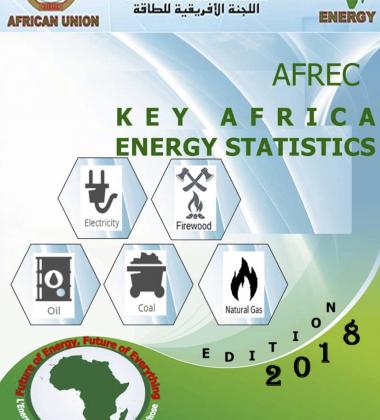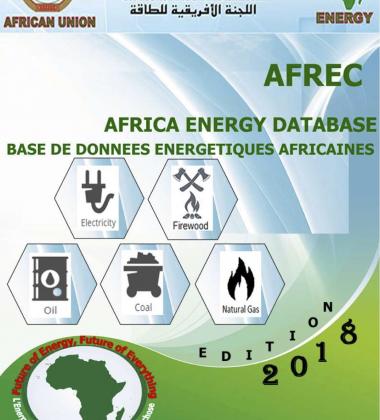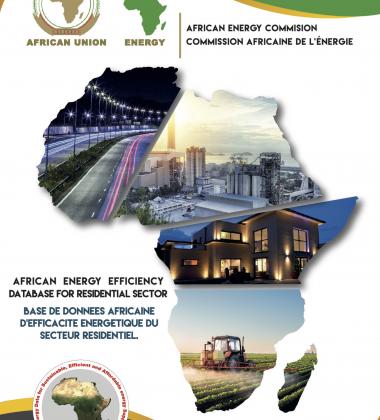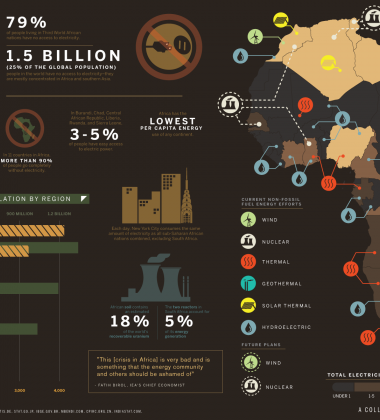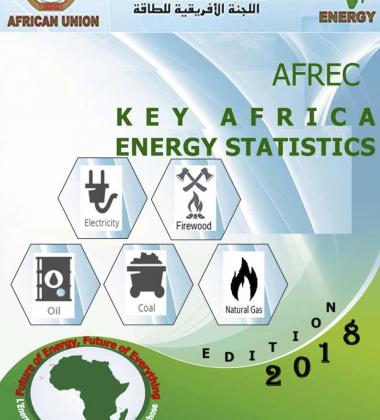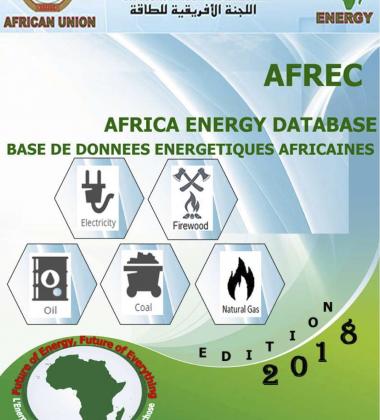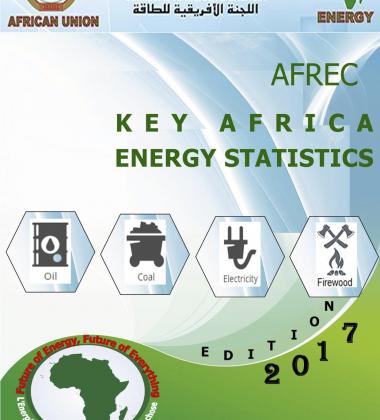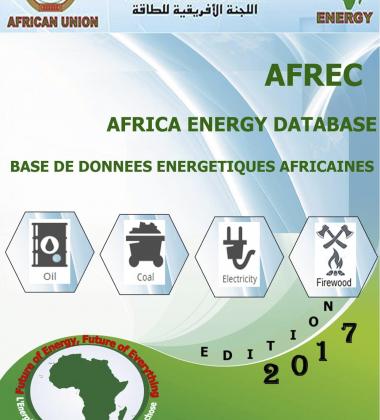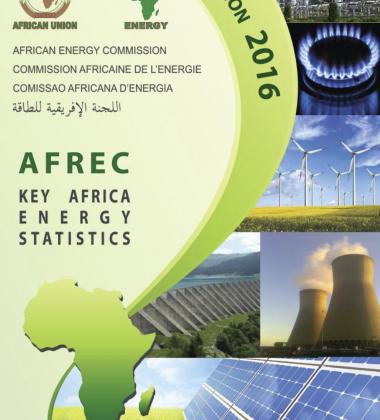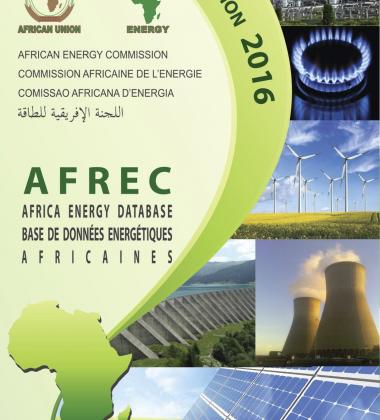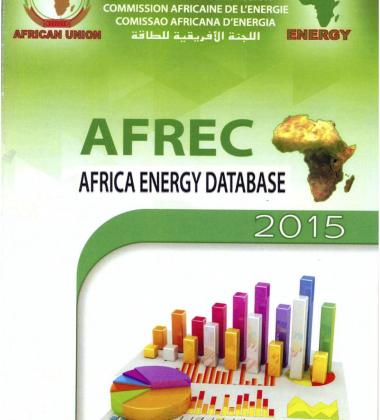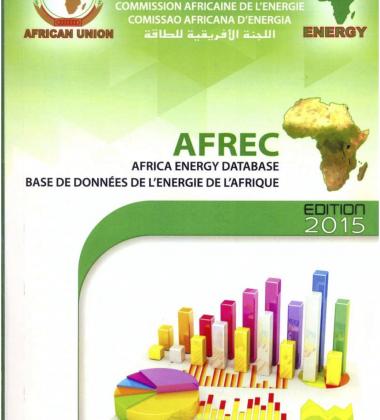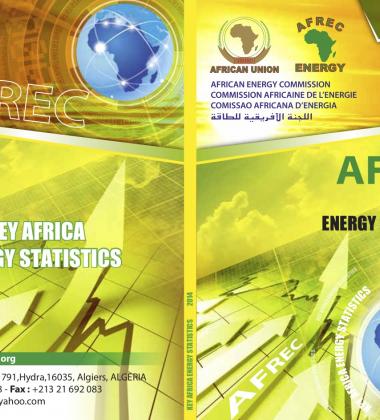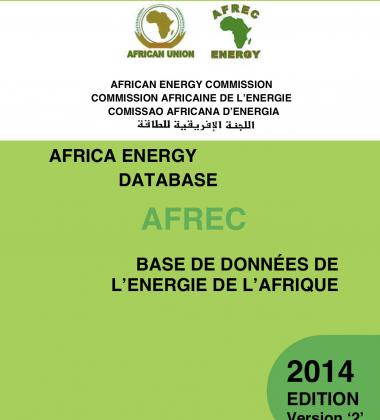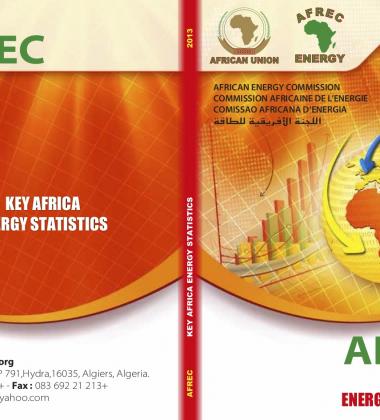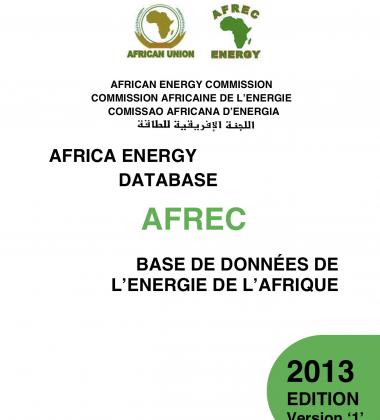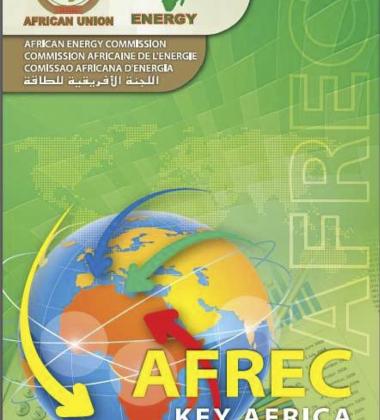Oil and Gas Programme
African Domestic Market for Oil Products and Natural Gas
1. Introduction:
Oil and Gas are a major source of revenue for the oil and gas exporting countries in Africa such as Nigeria, Angola and Algeria, accounting for between 50 – 80% of government revenues. Despite producing almost 10 million barrels of crude oil per day, which represents about 10% of global crude oil production, Africa’s crude oil consumption is the lowest in the world, less than 4%. Moreover, over 70% of the crude oil produced in Africa is exported out of the continent indicating that most of the energy resources on the continent are not fully exploited at the domestic level and opportunities for value addition, local manufacturing and trade are lost at the local level. In terms of natural gas, Africa exports more than 45% of its total production.
A majority of African countries are also net energy importers, which are highly exposed to volatility of energy prices thus jeopardizing their balance of payment positions. Over US$143 billion is spent annually to subsidize energy (oil, gas, coal and electricity) to protect consumers in African countries, For example, Nigeria in 2015 spends on average US$5 billion per annum to subsidize fuels. This imposes a huge fiscal burden on the economies of African countries thus posing a huge risk to economic development.
The low level of oil and gas trading between most of African countries is directly linked to the low levels of infrastructure and affordability issues that have created low demand of energy commodities. The processing and transport of energy commodities normally require specialized and large infrastructure including pipelines, refineries, etc, which also require huge finances to build in addition to absence of large markets that will enable economies of scale for investments in the energy sector.
There are also inadequate policies and institutions that promote value addition and beneficiation from oil and gas trading between the African countries. Where such policies and institutions exist, there are is weak implementation of policies and regulations, thus leading to uncoordinated markets and inefficient production that hamper value addition to energy commodities.
The place of natural gas in the African economy has not been brought out materially to entice the continent with its extraordinary potentials that can dramatically change the fortunes of the continent. This is perhaps why only a disproportionate attention has been given to this vital commodity by the African decision makers.
Across countries and regions. For example, most of the oil and gas reserves are concentrated in Northern and Western Africa. This could create the need to supply oil and gas to other regions through regional energy infrastructure thus facilitating markets creation/expansion as well as regional integration. Currently, there is virtually no cross border trading among African countries in terms of oil and gas products.
48. The exploitation, transportation, trading and utilization of energy resources has the potential to create significant amounts of jobs along the whole value chain in addition to providing the necessary inputs to promote economic development in other sectors.
2. Programme Description:
Create African domestic market for oil products:
A. The petroleum products market in Africa is on the climbing curve from the demand side, which shows a need for the same proportionate (if not more) rise in supply to avoid imminent shocks and crisis. Policies and strategies are therefore in high and immediate demand to put concrete and practical actions in place to balance the market.
B. Africa’s current refineries installed capacity is 2,76K1bbl/d, with big refineries exceeding 100Kbbl/d like Mohammedian, Alexandria, Zawiya, Ra’s Lanuf, Warri, Kaduna, P/Harcourt, Sasol, Natref, Sapref and Engen refineries in Morocco, Egypt, Libya, Nigeria and South Africa.
C. Data from AFREC provides evidence that only Algeria, Egypt, South Africa, Sudan and Senegal have consistently produced petroleum products reflecting an active utilization of their refinery installed capacity since 2000 to 2018. Other countries like Uganda, Eritrea, Madagascar, Tanzania, and Mauritania have completely closed down since 2000. Published accounts and AFREC data from 2000 to 2018 indicate that most of the refineries are performing far below installed capacity.
D. From the AFREC 2018 statistical report, the huge installed capacity of 2,76K1bbl/d, Africa refineries produced only 108 million tonnes of petroleum liquids. This shows the gross underutilization of installed refinery capacity in the region. Therefore, the continent had to import 66 million tonnes of petroleum products to make up for the 174 million tonnes final supply delivered to the market in 2016.
E. While export of crude oil generates substantial foreign exchange too heavily crude oil endowed producing states like Nigeria, import of petroleum products decimates foreign exchange earned heavily. It is on the records of the Central Bank of Nigeria that import of petroleum products consumed over US$30.8 billion in 2013. The distortion petroleum import does to African states includes:
- Distortion to budgetary planning and management by crude oil price volatilities
- Drain on scarce foreign exchange;
- Creates and support jobs for foreign organization through shipping patronage; insurance services, international maritime fees and refining margins;
- Assets wasting for refineries not in use.
- Energy insecurity.
Integrate the domestic Natural Gas in African Energy Sector:
A. Data from AFREC and other published evidences show that the Africa’s domestic natural gas market compared with rest of the world is the smallest but it raising. The 2018 data from AFREC show that domestic natural gas supply was 8.3 million Terajoules. This in calorific content translates into 198.43 Mtoe compares to 101,696 Mtoe for Japan.
B. Statistic show also poor investment level of natural gas in the Africa, the contribution of gas to the gross domestic products of the region has perpetually remain far below 1% in the ten years from 2007 – 2016 and contributes only 5% of the total electricity produce in the region.
C. The Electric power generation is not the only sector dependent on Natural Gas (NG) but like elsewhere other critical economic sectors of the continent are also mostly gas-dependent like Agricultural sector; Infrastructural sector (cement, smelting plants specifically); Residential uses and Chemical industry.
D. In conclusion, there is low contribution of natural gas in energy sector of sub-Sahara Africa region which is also clearly affect the gas dependent key sectors that are drivers of its economy such as agriculture, industry and electric power should be of a great concern.
3. Objectives of the Programme:
A. This programme will focus in creating African domestic crude oil and petroleum products market in collaboration with main African stakeholders mainly crude oil producers, net oil products consumers, current owners of unused and underused refineries and regional and national authorities. The programme will concentrate on the following:
- Create Domestic African Market for the crude and oil products
- Develop policies, strategies and action plans for expansion of refinery production capacity in Africa;
- Revisit the existing petroleum policies and laws with a view to strengthening policies targeted to petroleum products market.
B. The programme will focus exclusively on creating domestic natural gas market in Africa with target outcome on a market model from policy and investment approaches. Five attributes on which the market model could be addressed include:
- New Market Structure
- New Market Practices
- A proto-type financial liquidity system
- A regional Infrastructural System
4. Recommendation:
Support the implementation of the programme and urge the African union, African Energy Commission (AFREC), Regional institutions and Member States to allocated the required resources for implementation of Oil and Gas Programme of Create African Domestic Market for Oil Products and National Gas;
Key Resources
- août 16, 2019
- août 20, 2018
- août 20, 2018
-
août 20, 2018
The AFREC Africa Energy Statistics is a comprehensive collection of statistical data based on production, consumption, imports and exports of energy resources of the African countries.
- août 01, 2018
- août 01, 2018
- août 01, 2018
- avril 01, 2018
- septembre 01, 2017
- août 20, 2017
- août 20, 2017
- avril 01, 2017
- août 20, 2016
- août 20, 2016
- juin 01, 2016
- août 20, 2015
- août 20, 2015
- juin 01, 2015
- août 20, 2014
- août 20, 2014
- août 20, 2013
- août 20, 2013
- juin 01, 2013
- août 20, 2012





